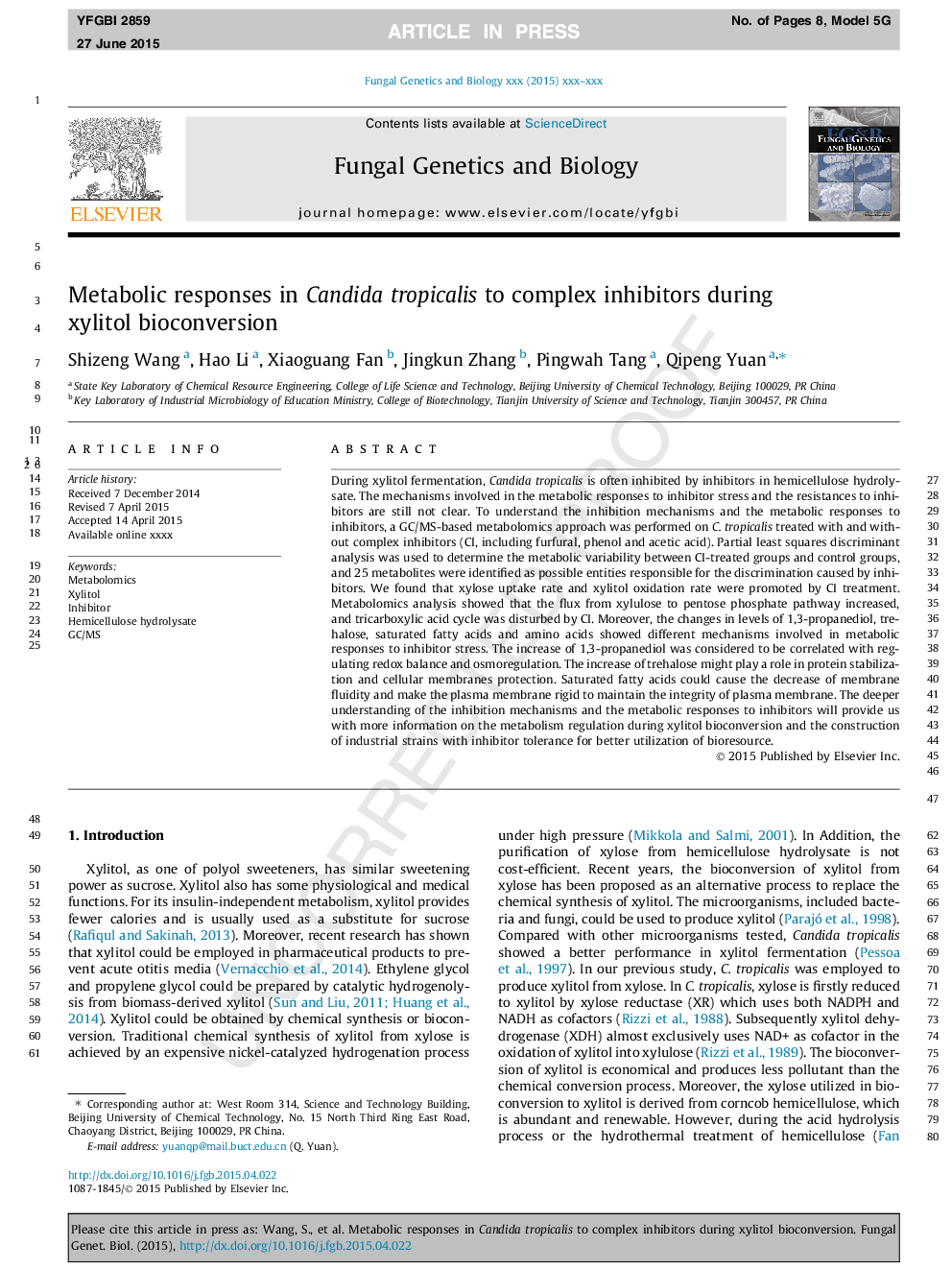| Article ID | Journal | Published Year | Pages | File Type |
|---|---|---|---|---|
| 8470615 | Fungal Genetics and Biology | 2015 | 8 Pages |
Abstract
During xylitol fermentation, Candida tropicalis is often inhibited by inhibitors in hemicellulose hydrolysate. The mechanisms involved in the metabolic responses to inhibitor stress and the resistances to inhibitors are still not clear. To understand the inhibition mechanisms and the metabolic responses to inhibitors, a GC/MS-based metabolomics approach was performed on C. tropicalis treated with and without complex inhibitors (CI, including furfural, phenol and acetic acid). Partial least squares discriminant analysis was used to determine the metabolic variability between CI-treated groups and control groups, and 25 metabolites were identified as possible entities responsible for the discrimination caused by inhibitors. We found that xylose uptake rate and xylitol oxidation rate were promoted by CI treatment. Metabolomics analysis showed that the flux from xylulose to pentose phosphate pathway increased, and tricarboxylic acid cycle was disturbed by CI. Moreover, the changes in levels of 1,3-propanediol, trehalose, saturated fatty acids and amino acids showed different mechanisms involved in metabolic responses to inhibitor stress. The increase of 1,3-propanediol was considered to be correlated with regulating redox balance and osmoregulation. The increase of trehalose might play a role in protein stabilization and cellular membranes protection. Saturated fatty acids could cause the decrease of membrane fluidity and make the plasma membrane rigid to maintain the integrity of plasma membrane. The deeper understanding of the inhibition mechanisms and the metabolic responses to inhibitors will provide us with more information on the metabolism regulation during xylitol bioconversion and the construction of industrial strains with inhibitor tolerance for better utilization of bioresource.
Related Topics
Life Sciences
Biochemistry, Genetics and Molecular Biology
Cell Biology
Authors
Shizeng Wang, Hao Li, Xiaoguang Fan, Jingkun Zhang, Pingwah Tang, Qipeng Yuan,
